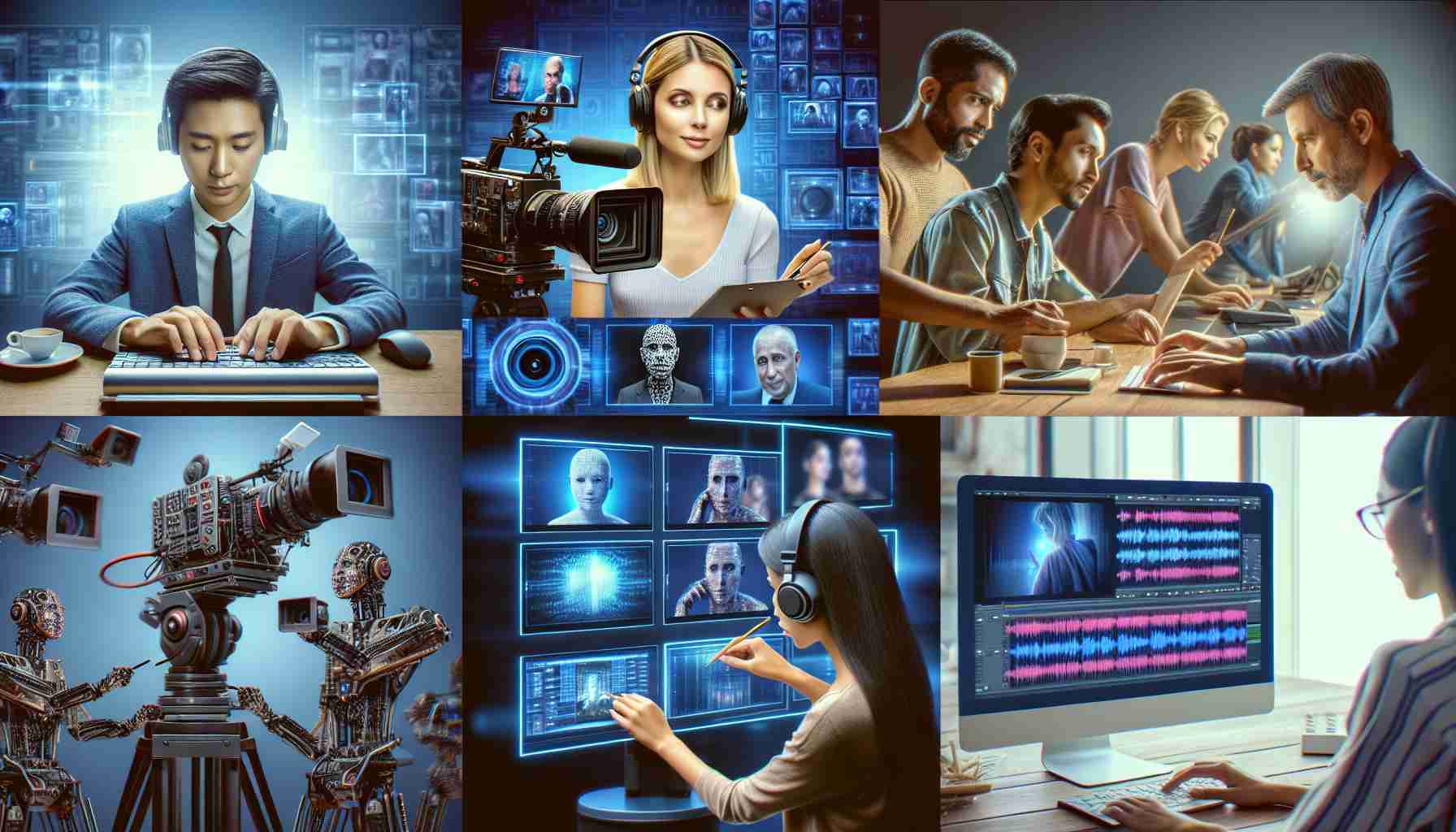While there has been concern in Hollywood about the potential takeover of artificial intelligence (AI) in the entertainment industry, there is a growing belief that this technology can never replace the invaluable contribution of “human experience.”
AI became a significant topic in Hollywood when the Writers Guild of America (WGA) and SAG-AFTRA found themselves in disagreement with the studios regarding its use. Both unions insisted on provisions in their film and TV contracts to protect their members from the use of AI, which eventually led to lengthy strikes.
In a recent discussion on actor Rob Lowe’s podcast, Netflix CEO Ted Sarandos shared his thoughts on AI. He believes that those creators who master the use of AI tools will have the upper hand. Sarandos emphasized that it would not be the companies but the individuals who have the advantage in utilizing AI effectively.
However, Sarandos also noted that AI cannot substitute for filmmakers entirely. While it’s plausible that AI can replicate or imitate certain aspects of filmmaking, there is an authenticity and reality in human experience that cannot be replicated. He pointed to the success of Netflix’s hit show, SQUID GAME, which was acclaimed for its originality and genuineness.
Sarandos further explained that although people may attempt to use AI as a shortcut to the human experience, there is no substitute for it. Movies and films created solely through AI would lack the intensity, personal connection, and emotional impact that the viewers crave.
Other filmmakers, such as James Cameron, have also expressed their skepticism about AI’s ability to move audiences. Cameron believes that an AI, which merely regurgitates what other humans have said about life, love, fear, and mortality, lacks the power to connect with and touch the hearts of viewers.
Despite these concerns, it is worth noting that AI can enhance the filmmaking process. It can assist filmmakers in various tasks, such as generating unique story ideas, analyzing audience preferences, and even enhancing special effects. However, it is the artistic vision and human touch that ultimately create a compelling and emotionally resonant film.
As THE MARTIAN producer Ridley Scott warned, AI poses certain risks that need to be addressed. There is a need to have proper regulations in place to prevent any potential misuse or unintended consequences. While AI has the potential to be incredibly powerful, it is crucial to ensure that it is harnessed responsibly.
In conclusion, while AI has its role in the future of filmmaking, it is unlikely to replace the creative minds and human experiences that bring stories to life. The collaboration between technology and human talent is where the true magic lies in the world of entertainment.
FAQs
1. Can artificial intelligence completely replace filmmakers?
While AI has the ability to replicate certain aspects of filmmaking, there is an inherent authenticity and human touch that cannot be replicated by machines. Filmmaking is a creative process that draws upon the unique perspectives and experiences of filmmakers.
2. How can AI enhance the filmmaking process?
AI can be used to generate fresh story ideas, analyze audience preferences, and enhance special effects. It can streamline certain tasks and provide valuable insights to filmmakers, allowing them to make more informed artistic decisions.
3. What risks does AI pose in the entertainment industry?
There are concerns about the potential misuse of AI and its unintended consequences. Proper regulations and ethical guidelines need to be in place to ensure the responsible use of AI in filmmaking.
4. Can AI create emotionally impactful films?
While AI may be capable of imitating certain emotions, it lacks the deep emotional connection that human experiences and storytelling can provide. The true emotional impact of a film is often derived from the human perspective and the ability to convey genuine emotions.
Sources:
– [Deadline](https://deadline.com/)
– [Rolling Stone](https://rollingstone.com/)
1. Artificial Intelligence (AI): The simulation of human intelligence in machines that are programmed to think and learn like humans. In the context of the article, it refers to the use of AI technology in the entertainment industry.
2. Writers Guild of America (WGA): A labor union representing film, television, and radio writers in the United States.
3. SAG-AFTRA: Screen Actors Guild-American Federation of Television and Radio Artists, a labor union representing actors, singers, and other media professionals.
4. Authenticity: The quality of being genuine, real, or true to oneself. In the context of filmmaking, it refers to the unique human experiences and perspectives that contribute to the creation of original and meaningful stories.
5. Regulate: To control or govern by establishing rules or regulations. In the context of the article, it refers to the need for establishing proper guidelines and regulations to ensure responsible use of AI in filmmaking.
6. Special effects: Techniques used in filmmaking to create visual illusions or unusual visual elements that are difficult or impossible to achieve in real life.
Related Links:
– Deadline: A reliable source of news and information about the entertainment industry.
– Rolling Stone: A well-known magazine covering various aspects of popular culture, including music, entertainment, and film.
The source of the article is from the blog queerfeed.com.br

